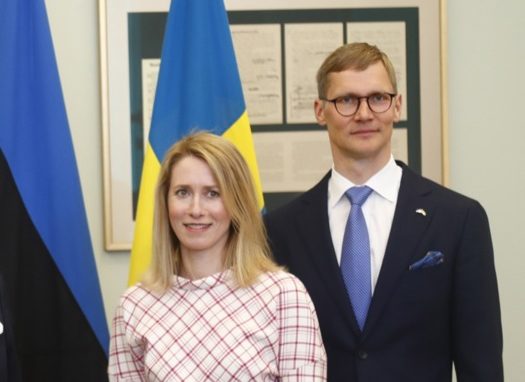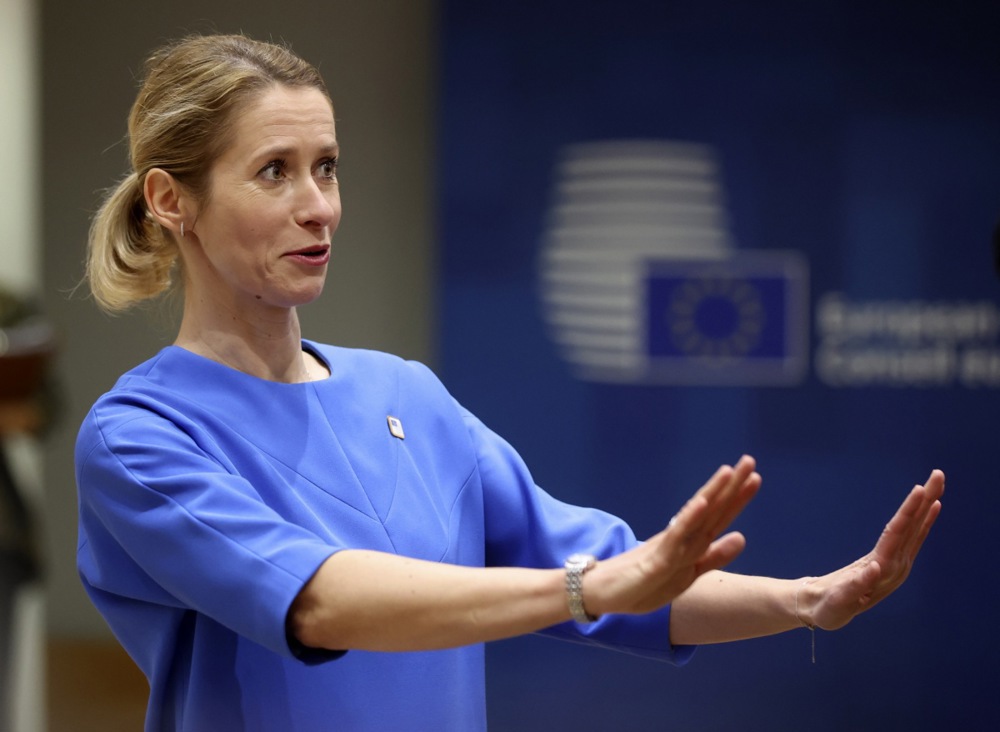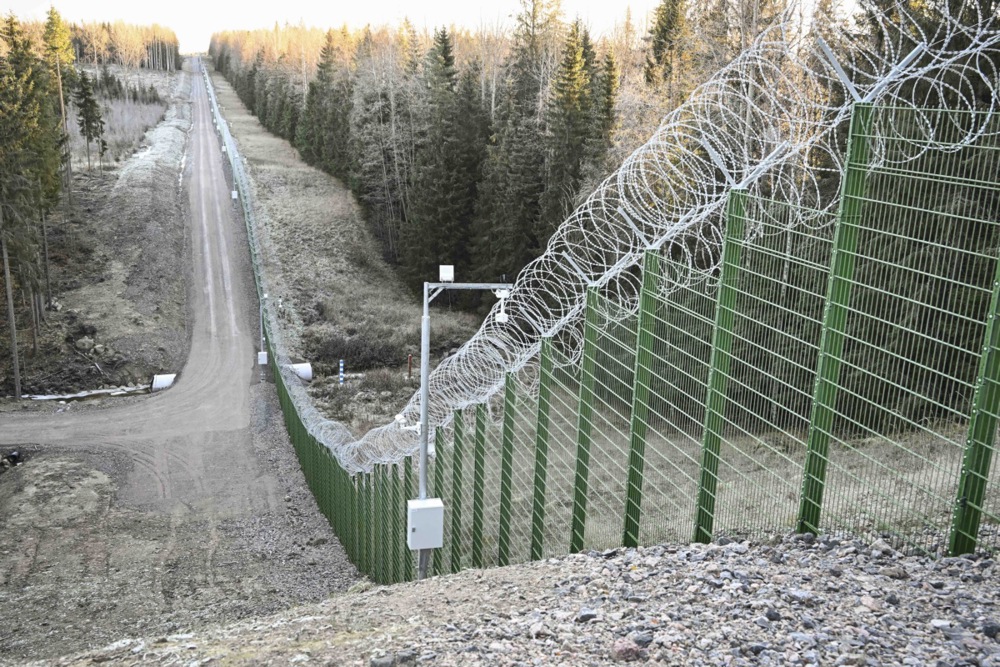According to the Russian interior ministry’s website, Estonian Prime Minister Kaja Kallas is “wanted under the criminal code”.
The same is the case for Estonia’s secretary of state Taimar Peterkop and Lithuanian culture minister Simonas Kairys.
Keir Giles, a Russia expert at the UK’s Chatham House think-tank, told Brussels Signal that the names are on an “internal affairs charges” list rather than its international one, meaning they are not public.
“The intended effect is less straightforward,” Giles said.
“It could be procedural, a move from the Russian State, that likes to have its paperwork in order, to prepare for other steps.
“But it could also aim for direct intervention against individuals, encourage other countries to put them on travel blacklists, or inconvenience them,” he added.
Law enforcement agencies have told Russian State news outlet TASS that a case was initiated against Kallas and Peterkop “for the [alleged] destruction and damage to monuments to Soviet soldiers”.
“As part of this case, they have been put on the wanted list,” the agency’s interlocutor said.
Giles said Russia had a long track record of targeting “critical individuals”, many of whom subsequently feared for their own safety
His book, Russia’s War on Everybody, describes how those who speak out against the Kremlin have suffered harassment, invasions of their privacy and “Novichok attacks”. That was the nerve agent used in the 2018 poisoning of Sergei and Yulia Skripal, known as the Salisbury Poisonings.
According to Giles, the Russian web notification does not necessarily mean action will be taken. Although he added: “There is a track record that Russia conducts reprisals against critics.
“It is clear that there are countries, including members of NATO, who listen to what Russia says.”
Giles also pointed out that Russia has put sanctions on British historians and some officials and, while they have no real impact, those individual are no longer permitted to enter Russia.
Such sanctions, he said, are seen more as “a badge of honour, an indication that their hard word has an impact and annoys Russia”.
“Seems they have been busy making lists of people they don’t like,” Giles concluded.
More than 170 foreign nationals, from Latvia, Lithuania, Estonia, Poland and Ukraine among others, were brought before the Investigative Committee of the Russian Federation in September last year as defendants “in absentia” in cases involving the alleged mutilation and destruction of monuments honouring Soviet soldiers.
Of more than 96,000 entries on Russia’s “wanted” list, 700 are foreigners, including Latvian, Lithuanian and Polish government officials, according to Mediazona, a Russian media outlet apparently hostile to President Vladimir Putin.
Many high-ranking Ukrainian military officers and hundreds of people whom investigators seem to consider “foreign mercenaries” are also on the list.
Mediazona compiled a search list, in Cyrillic, to enable those interested to find who is on the list.
Most notices filed regard Russian citizens or those of former USSR-run countries. Other nations account for about 2 per cent of the total.
Notable names on the lists include, for example, the President of the International Criminal Court Piotr Hofmański, who issued an arrest warrant for Putin in March last year, and Facebook owner Meta’s press secretary Andy Stone, who was arrested in absentia on charges of allegedly “aiding terrorism”.
The Latvian Parliament, or Saeima, has 59 of its 68 members on the wanted list, apparently due to its decision to exit an agreement with Russia on preserving memorials.
That resulted in numerous Soviet monuments in Latvia being removed – much to the Kremlin’s irritation.
Update:
Brussels Signal received a reply from Kallas.
“Today’s move by the Russian Federation is nothing surprising; it’s a familiar scare tactic. Estonia and I remain steadfast in our policy: supporting Ukraine, bolstering European defence and fighting against Russian propaganda.
“Russia may believe that issuing a fictitious arrest warrant will silence Estonia. I refuse to be silenced – I will continue to vocally support Ukraine and advocate for the strengthening of European defences,” she stated.
“Throughout history, Russia has veiled its repressive actions under the guise of ‘law enforcement’.
“This hits close to home for me; my grandmother and mother were once deported to Siberia and it was the KGB who issued the fabricated arrest warrants.
“I’ve always maintained that the Russian regime’s criminal toolbox has not changed. We refuse to be intimidated by Russia’s scare tactics.
“The Kremlin now hopes this move will help to silence me and others – but it won’t,” Kallas added in a post on social media platform X.
Referring to Kallas, Spanish Prime Minister Pedro Sánchez said on X: “[Russian President Vladimir] Putin’s move is another proof of your courage and Estonia’s leadership in defending democracy and freedom.
“He won’t bully us. The Spanish people and Europe stand behind you.”
Kairys said the arrest order “means I acted actively and in a principled way”.





